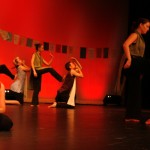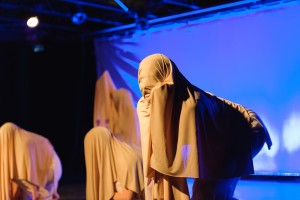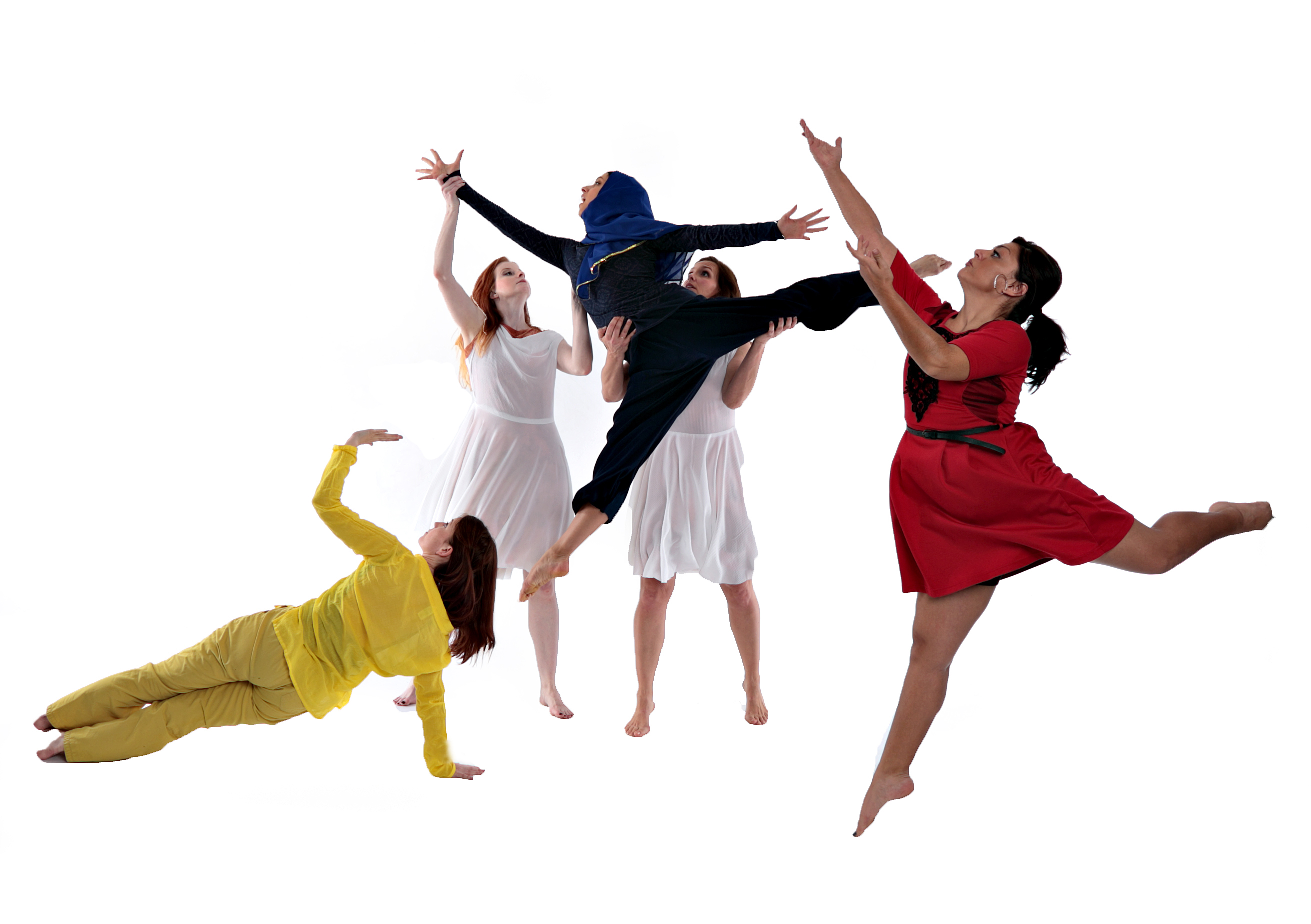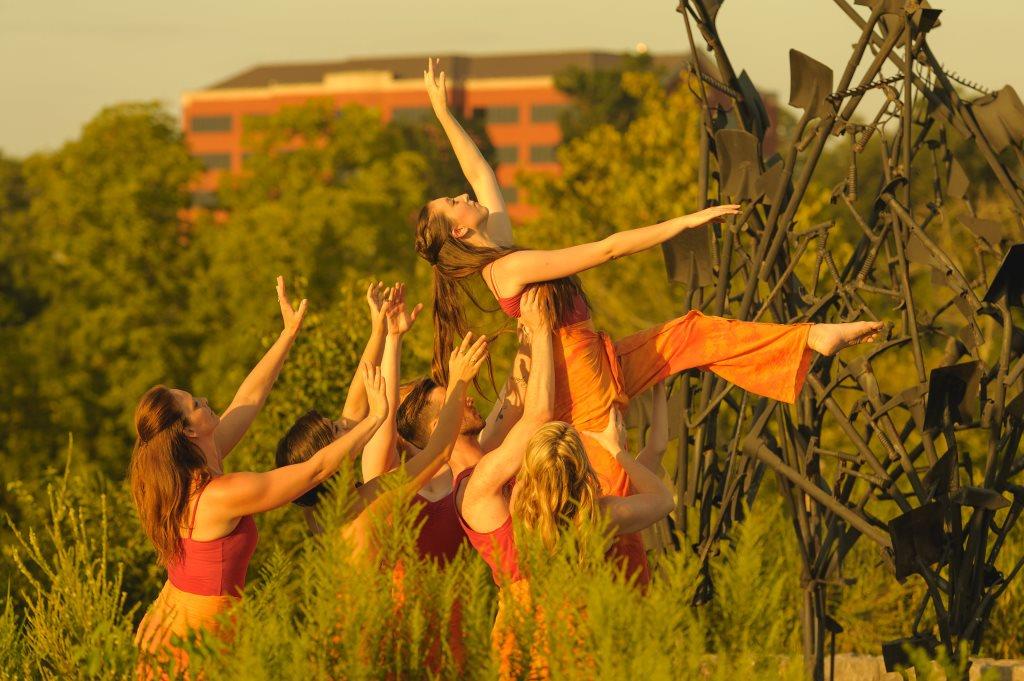“Yearning to Breathe Free” features the voices of Julie from Colombia, Elizabeth from Burma, and Kasar from Kurdistan, who now call Nashville home.
Combining audio excerpts of interviews with music and contemporary choreography, this piece gives a window into immigrants’ lives before and after they make a new home in Nashville. It also urges a constructive dialogue on immigration and reminds us of the words engraved on our Statue of Liberty: “Give me your tired, your poor, your huddled masses, yearning to breathe free.”
“Yearning to Breathe Free” premiered at Blue Moves’ “Blue O2” show as part of Nashville’s SIDESHOW Fringe Festival in August, 2013. It was part of the Picnic in the Park Series Thursday, October 24th, along with excerpts of “Voices of Nashville”, Tennessee Women’s Theater Project’s new play sharing the stories of immigrants in our community. Thanks to Metro Arts Commission and ArtOber for making this performance possible. This piece was also part of Global Education Center‘s Global Bash in February and on the Vanderbilt Dance Program’s Spring Concert in April 2014.
Excerpts were performed at the Americans for the Arts Annual Convention in June 2015, opening the plenary session “The Power of Arts in Transforming Communities.” You can watch that performance here.
Responses from audience members:
“I took the time to go see this dance and it was amazingly beautiful…. tears came to my eyes as I was challenged to see and hear of experiences that have never been a part of my reality…. such a worthy endeavor.” — Kathy Plourde
“Story told through the ARTS builds bridges and connects us like nothing else! As part of Picnic in the Park I just saw “Yearning to Breathe Free” and excerpts of “Voices of Nashville” at the library. I wish all especially those who are prejudiced, rigid and afraid could hear the immigrant stories collected and incorporated into these two pieces. Thank you Amanda Cantrell Roche and Blue Moves dance group and Sara Sharpe and Christine Mather and TN Women’s Theater Project!” – Dawn Kirk
Global Nashville premiers Braid from Amanda Cantrell Roche on Vimeo.
Global Nashville: Building Bridges of Compassion is a community-created art project addressing stories and needs of the immigrant and refugee population in Nashville. Through a free public community forum and a writing workshop, teaching artist Amanda Cantrell Roche and Global Education Center provided a unique opportunity for immigrants and refugees from diverse backgrounds to come together and reflect upon their personal and collective challenges and identities. Audio recordings of their stories and collective statements were made, and blended with an original score created by composer Carlos Duran. Amanda worked with a multi-cultural cast of professional contemporary dancers to create “Braid”. This work premiered at Celebrate Nashville, Saturday, October 7, 2017, and was performed again at “Ballet Plata y Oro” and “Women’s Works.” Through the power of music, dance, and words, the goal is to tell an poignant and vital story that touches people emotionally and intellectually, and fosters the natural progression from empathy to compassion, and compassion to action.
Click here for more info on “Braid” and Global Nashville Project.
“Divine Sparks” premiered October 25, 2014 as part of Blue Moves’ “Burning Blue” at Cumberland Park, Nashville. It was also performed for an integrated audience of general public and the homeless at Room in the Inn, in conjunction with Poverty & the Arts, February 2015.
Featuring the words of Lindsey Krinks of Open Table Nashville, Tamara Ambar of Nashville Conflict Resolution Center, Ngawang Losel of One Human Race 4 Justice and Sara Sharpe of Festive Evolution, this dance recognizes the fire of activism and the divine spark that exists within us all to work towards making our communities and our world a more just and better place.
You can watch excerpts of “Divine Sparks” here.
Responses from audience members:
‘Divine Sparks’ deeply impressed, inspired, and touched me. Amanda Cantrell Roche truly has a gift for creating work of that nature that maintains the difficult balance between subtly and directness, invoking real emotions and encouraging action, rather than bringing guilt for inaction.” – Rebekah Hampton Barger
“Deeply satisfying art meditation on the ‘divine spark’ in us all, shared among us, individual to us. Beautiful choreography and execution. I wish everyone I know could have been there – talk about enLIGHTenment!!!!” – Carol Ponder (this was in response to both “Divine Sparks” and also the entire show, “Burning Blue”)
Here are a couple of my older favorite social justice choreographic works.
Breaking the Bones:A Plea for Tibet Premiered March 15, 2008 
- photo by Krystal Kinnunen
Choreography:Amanda Cantrell Roche
Music:Nawang Khechog
Narration:F. Lynne Bachleda and Ngawang Losel
Voice Recording:Rob Clark
Music and Voice Engineering:Ernie Gray
Costume design and creation:Kristen Hubbard
10 dancers/approximately 13 minutes
“I speak not with a feeling of anger or hatred towards those who are responsible for the immense suffering of our people and the destruction of our land, homes and culture. They too are human beings who struggle to find happiness and deserve our compassion. I speak to inform you of the sad situation in my country today and of the aspirations of my people, because in our struggle for freedom, truth is the only weapon we possess.” — His Holiness the Dalai Lama
Apart from including a few representations of customs and movements such as prostrations, I made no attempt to present this as authentic Tibetan dance or movement. Conversely, it is a response to the struggle and enduring spirit of Tibetans from a very Western viewpoint which uses modern dance – a form born in America – as the language through which to communicate, as well as narration by a Tibetan exile and an American narrator. I think this is reflective of His Holiness the Dalai Lama’s beliefs that, while we should honor the different beliefs and practices of other cultures, nationality is not really important. What is important is that we recognize we are all human beings and we need to treat each other with dignity and compassion.
Tibetans have endured such oppression, loss – some groups have called it genocide — at the hands of the Chinese government, and yet they remain peaceful in their struggle and their spirit is so resilient. Many former Tibetan political prisoners who endured torture for years will say they have compassion for their torturers.
The arts have the power to tap into our humanity and help us learn to care more deeply and to be more fully present in the world and in our daily lives. When you can create something that is beautiful that also helps people connect on a more intimate level to other human beings and perhaps even delve into their own identity, you are making art rather than entertainment.
“Freedom from Fear” 1996


